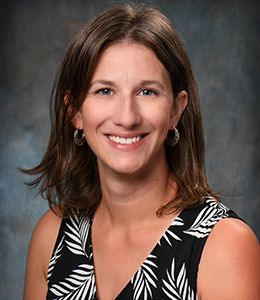
Caroline S. Fortunato, PhD
- Assistant Professor
Affiliated Programs
Education
- PhD, Marine Estuarine Environmental Science (2012)
University of Maryland (MD) - MS, Biology (2007)
American University (Washington, D.C.) - BA, Environmental Studies (2005)
American University (Washington, D.C.)
About Me
I received my PhD in marine estuarine environmental science from the University of Maryland studying spatial and temporal changes in the microbial communities of the Columbia River coastal margin. As a postdoctoral researcher at the Marine Biological Laboratory in Woods Hole, MA, I studied the functional profiles of hydrothermal vent associated microbes.
My teaching interests include microbial ecology, general microbiology, biological oceanography, and environmental science. In my teaching I promote an inclusive and active learning environment. I highly encourage students to ask questions and think critically about the scientific concepts we are learning. One of the most rewarding aspects of my job is seeing the excitement of a student when they find an interesting result, or when they become passionate about figuring out a specific problem. I take pride in helping to ignite this passion for science in all my students.
Research Interests
My research focuses on the phylogenetic and functional diversity of microbial communities across gradient-driven ecosystems, from soils to estuaries to the deep sea. In these environments, microbes drive major biogeochemical cycles. Yet our understanding of how microbes transform carbon and nutrient compounds, the taxa involved in these reactions, and the impact microbes have on ecosystem function remains poorly constrained. Using both field and laboratory experiments coupled with next-generation sequencing, my research examines the functional adaptations and shifts in population structure of microbial communities across physical, chemical, and biological gradients. By determining how and why microbial community structure, genomic potential, and gene expression change across environmental gradients, we can better predict how ecosystems and their resident communities will respond to environmental change.
My current projects include assessment of microbial diversity in grassland soils of Northeastern PA as well as studying the microbial populations associated with Harmful Algal Blooms (HABs) in Lake Erie.
Publications
- Elkassas S.M., Fortunato C.S., Grim S.L., Butterfield D.A., Holden J.F., Vallino J.J., Algar C.K., Zeigler Allen L., Larson B.T., Proskurowski G., Reddington E., Stewart L.C., Topçuoğlu B., & Huber J.A. (2025) Metabolic and population profiles of active subseafloor autotrophs in young oceanic crust at deep-sea hydrothermal vents. Applied and Environmental Microbiology, 91:e01868-25
- Kelleher, L.A., Anderson, Z., Stratford, J.A., and Fortunato, C.S. Deciphering Soil Microbial Dynamics in Northeastern American Grasslands with Goldenrods (Solidago sp.). Microb Ecol 88, 53 (2025). https://doi.org/10.1007/s00248-025-02525-0
- Moulana, A., R.E. Anderson, C.S. Fortunato, J.A. Huber. 2020. Selection Is a Significant Driver of Gene Gain and Loss in the Pangenome of the Bacterial Genus Sulfurovum in Geographically Distinct Deep-Sea Hydrothermal Vents. mSystems 5(2), e00673-19
- Fortunato, C.S., B. Larson, D.A. Butterfield, and J.A. Huber. 2018. Spatially distinct, temporally stable microbial populations mediate biogeochemical cycling at and below the seafloor in hydrothermal vent fluids. Environmental Microbiology. 20(2) 769-784
- Fortunato, C.S. and J.A. Huber. 2016. Coupled RNA-SIP and metatranscriptomics of active chemolithoautotrophic communities at a deep-sea hydrothermal vent. The ISME Journal, 10: 1925-1938
- Fortunato, C.S. and B.C. Crump. 2015. Microbial gene abundance and expression patterns across a river to ocean salinity gradient. PLoS ONE 10(11): e0140578
